Panasonic sees Tesla as deeper partner for self-driving cars too: CEOPanasonic sees Tesla as deeper partner for self-driving cars too: CEO
Japanese electronics firm Panasonic has been a close partner of Tesla Motors for many years now.
It is the Silicon Valley automaker’s sole battery supplier, it helps fund and operate the Tesla “Gigafactory” in Nevada, and the company owns a small stake in the carmaker.
But Panasonic wants to move its partnership with Tesla beyond batteries, according to its CEO.
DON’T MISS: What a prototype self-driving Tesla ‘sees’ on public roads (Nov 2016)
The company aims to extend that partnership to include self-driving cars, Kazuhiro Tsuga said in a recent interview with Reuters.
“We are deeply interested in Tesla’s self-driving system, the Panasonic CEO said, adding that his company hopes to “expand our collaboration by jointly developing devices for that, such as sensors.”
Tsuga suggested that so-called organic photoconductive film CMOS image sensors currently under development by Panasonic could be incorporated into future self-driving cars.
Tesla gigafactory, March 2016, shown in drone footage posted to YouTube by Above Reno
These sensors enable high-speed detection of moving objects without distortion, Tsuga said.
Tesla has indicated so far that it will use a combination of radar and cameras similar to that used in its current Autopilot driver-assist system as the basis for future autonomous-driving hardware suites.
Despite its name, Autopilot itself does not allow autonomous driving, and requires the driver to be attentive at all times.
ALSO SEE: Tesla battery partner Panasonic expects cell sales to double in three years (Jul 2016)
It’s worth noting that relying only on cameras and radar makes for a more basic setup than other automakers are pursuing.
Most incorporate lidar—which works like radar but with light instead of radio waves—something Tesla CEO Elon Musk has resisted.
It is unclear if Musk would be more receptive to using additional sensors supplied by Panasonic.
Tesla self-driving demonstration video screenshot
The Japanese company’s interest in Tesla self-driving cars is the latest indication of a continued shift away from consumer electronics, and toward automotive businesses.
Panasonic views automotive products as offering greater potential for growth than consumer electronics, a market where it faces stiff competition from Chinese and South Korean firms.
MORE: Tesla upgrades self-driving sensors, hardware; full autonomy test next year? (Oct 2016)
Tesla is currently testing self-driving cars on public roads, and Musk believes the latest “Hardware 2” sensor suite will allow for “Level 5” autonomy, once more-sophisticated software becomes available.
The National Highway Traffic Safety Administration (NHTSA) defines Level 5 autonomy as a vehicle not fitted with a steering wheel or any driver controls, one where the occupant simply tells the car where to go and then could, theoretically, go to sleep while the car drives itself.
When Hardware 2 was launched late last year, Musk said his goal would be for a self-driving Tesla vehicle to leave Los Angeles, take one or more occupants to New York City, and park there without any driver input, as soon as this year.
_______________________________________________
Follow GreenCarReports on Facebook and Twitter
View original article at: “https://www.greencarreports.com//news/1108437_panasonic-sees-tesla-as-deeper-partner-for-self-driving-cars-too-ceo”
Related posts


Electric SUVs: Top 6 Models for Family Trips











